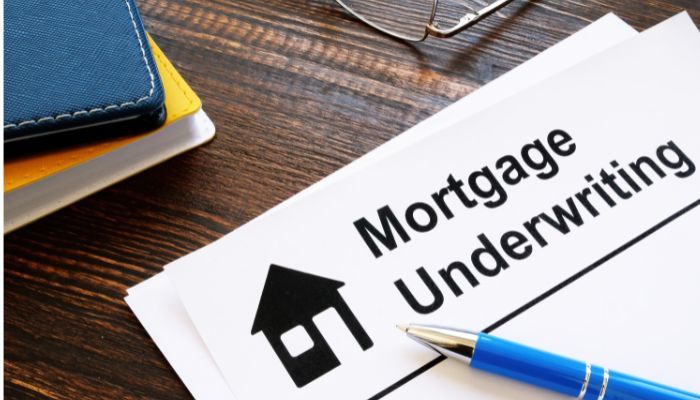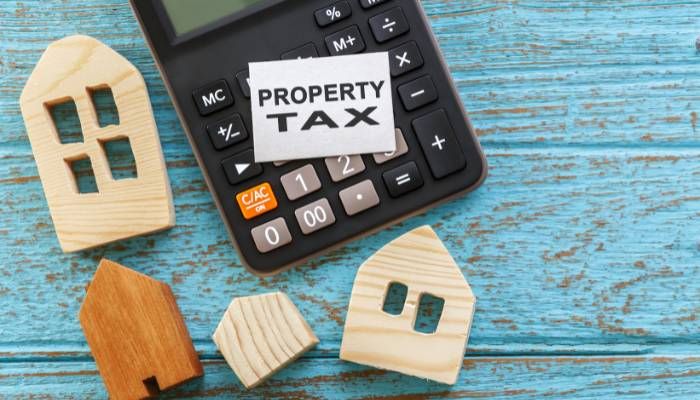
Tips for maintaining good credit while paying off a home loan
Jump To
Do you have a home loan and want to maintain a good credit score? With the right steps, it’s possible! According to recent statistics, almost 60% of Americans have mortgages. That means more and more people are trying to figure out how to pay off their loan while still managing their credit score. If you’re in this boat, don’t worry; we’ve got some tips that can help you out. In this article, we’ll discuss the best ways to pay off your mortgage while keeping your credit score healthy. Keep reading for all the details!
Understand Your Home Loan Terms & Conditions
Before getting a home loan, it’s important to understand all the terms and conditions. I recommend taking the time to read the fine print of your loan agreement. Get familiar with interest rates, fees, payments, and any other details that affect how much you will be paying back. It can be overwhelming but having a clear understanding of what you’re signing up for is essential for managing your credit score.
It’s also important to consider the long-term effects of taking out a loan. In addition to understanding the terms of your agreement, think about how this commitment may affect your other financial goals. A home loan is likely one of the biggest investments you’ll ever make; so take it seriously and make sure you are prepared for any potential challenges that come with it.
Now that we’ve discussed understanding your loan terms, let’s move on to creating a budget and sticking to it. Having a plan in place for how you’ll manage your finances can help you stay on track when it comes to repaying your home loan…
Create A Budget And Stick To It
Creating a budget and sticking to it is the key to maintaining good credit while paying off a home loan. It’s like painting a portrait- if you don’t have a plan, you’ll never get the desired result. Taking the time to understand your home loan terms and conditions is important for this process. But without creating a budget and staying within that budget, you won’t be able to keep up with payments or ensure that your credit remains in good standing.
It’s not easy to stick to a budget- but it’s part of what goes into being responsible with how you manage your finances. With this comes setting up reminders, tracking expenses, and taking advantage of online tools that can help you manage your money more effectively. To make sure your credit stays in good shape while paying off your home loan, creating and adhering to a budget is essential.
By regularly monitoring your credit reports, you can ensure that mistakes don’t go unnoticed, as well as identify any suspicious activity on them. Having an eye on these things will give you peace of mind knowing that your credit health is stable and secure during this period of repayment. Keeping track of these reports will help provide greater insight into the state of your financial wellbeing- so it’s worth doing!
Monitor Your Credit Reports Regularly
It’s important to stay aware of the impact your payments have on your credit score. Monitoring your credit reports regularly is a great way to stay on top of things. You can check for any inaccurate information or changes that could affect how lenders view you. That way, if something out of the ordinary pops up, you can take care of it quickly and keep your credit score high.
By monitoring your reports regularly, you’ll also be able to identify areas where you are doing better or worse than expected. This can help you adjust your budget and spending habits accordingly. Paying attention to these details will ensure that you’re always in control of your credit score and can make informed decisions about how best to manage it.
By taking the time to monitor your credit report, you can be proactive about maintaining a good credit rating while paying off a home loan. Knowing what’s being reported on your report and understanding how that impacts lenders’ views of you is invaluable knowledge when it comes to protecting and improving your score. Keeping track of this information will go a long way towards helping you reach the financial goals you set for yourself when purchasing a home.
Pay Bills On Time
Making your payments on time is the most important tip for maintaining good credit while paying off a home loan. It’s absolutely essential – there’s no getting around it! After all, if you don’t make your payments on time, you’ll start to see late fees and more serious repercussions snowballing over time. This could mean accumulating debt and even having a mark on your credit report that stays with you for years.
That’s why it’s so important to make sure you pay your bills on time every single month – no exceptions! You don’t want to be in a situation where you’re constantly trying to catch up or scrambling to make payments at the last minute before they’re due. Set up automatic payments if you can, so that you know everything is taken care of each month and nothing slips through the cracks.
It may take some effort, but making sure all of your payments are made on time each month is worth it when it comes to keeping a healthy credit score. And when it comes to paying off a home loan, this makes an especially big difference since mortgage lenders will be looking at your credit score before approving any applications. So next up we’ll talk about how to make sure those payments are always hitting their mark!
Make Your Payments On Time
Making payments on time is absolutely essential to maintaining a good credit score. As I’m sure we all know, late payments can lead to expensive penalty fees and affect your creditworthiness. To avoid this, it’s important to ensure that all payments are made on time. By doing so, not only will you save yourself from any potential financial repercussions, but you’ll also be able to build a strong and reliable credit history.
A great way to make sure that your payments are always on time is by setting up automatic transfers or reminders in your bank account or budgeting app. This will help you stay organized and keep track of when your bills are due, so that you don’t miss any payments. Additionally, if you’re unable to make a payment due to financial hardship or other circumstances, it’s important to reach out to the creditor as soon as possible and ask for assistance. By doing this, you’ll be able to avoid any additional penalties and work out an arrangement that works best for both parties involved.
Keeping your finances in order while paying off a home loan is no easy feat — but taking proactive steps towards making timely payments can make all the difference in terms of maintaining a healthy credit score. Taking these measures will ensure that you’re able to establish positive financial habits and remain financially responsible well into the future. With these tips in mind, it’s time for us to move on to the next step – paying more than the minimum payment!
Pay More Than The Minimum Payment
Paying off a home loan is no small feat. It requires dedication, consistency, and discipline. But if you can also maintain good credit while paying it off? Well, that’s a whole other ballgame!
So how can you manage both at the same time? Step 6: Pay more than the minimum payment. What’s great about this step is that it helps you pay off your loan faster and build up your credit score at the same time. The longer it takes to pay off your loan, the more interest you have to pay over time. And of course, being late on payments or missing them altogether will negatively affect your credit score.
By making extra payments toward your loan balance each month, not only are you cutting down on the amount of interest you’ll owe in the long run, but you’re also showing lenders that you’re reliable and committed to paying back what you borrowed. That’s why this tip is so important! You don’t have to make huge payments every month—even small extra payments count when it comes to improving your credit score.
TIP: Start out by adding just $10-$20 extra each month and gradually increase from there as much as your budget allows. Every little bit counts when it comes to maintaining good credit while paying off a home loan!
Consider Refinancing Your Home Loan
Refinancing your home loan can be a great way to maintain good credit, but it can also be daunting. After all, you’ve already made the commitment and getting a new loan might seem counterintuitive. However, there are several advantages to refinancing that make it worth considering:
- You may be able to reduce your interest rate or monthly payments.
- You could have access to more cash if you need it.
- You may even have the opportunity to pay off your mortgage faster.
These potential benefits outweigh any doubts that may linger, and you should at least explore the possibility of refinancing. Your bank or credit union is likely to have helpful information about the process and what options are available for you. Also, using an online calculator can help you decide if refinancing is right for you by estimating how much money you can save in the long run.
While exploring refinancing options, it’s still important to avoid taking on more debt than necessary. Taking out additional loans can quickly lead to financial trouble so try to stick with just one loan and make timely payments as often as possible. If refinancing isn’t right for you, look into other ways to reduce your monthly payments such as changing or extending the duration of your loan or deferring payments if needed.
Avoid Taking On More Debt
The road to becoming debt free is like climbing a mountain; it’s a long and arduous journey, but the reward of being debt free is worth the effort. Now that you have considered refinancing your home loan, it’s important to also consider avoiding taking on more debt. Adding more debt to an already existing burden can be damaging to your credit score and make paying off your home loan all the more difficult.
To avoid taking on more debt, limit yourself from opening new credit cards or applying for loans, with the exception of student loans if you don’t already have one. Even if you have extra money to spend, try not to buy something unless it’s absolutely necessary. You can save up and pay for things in cash instead of using your credit card. This will help prevent you from getting further into debt while still paying off your home loan.
It’s also important to ensure that you are budgeting wisely so that you can keep up with all of your payments while still having enough money left over each month for other expenses. By budgeting responsibly, you’ll be able to prioritize what bills need to get paid first and allocate funds accordingly without overextending yourself financially. With careful planning and mindful spending habits, you’ll be able to maintain good credit while paying off your home loan simultaneously. Moving forward, avoid closing any unused credit cards as this could potentially hurt your credit score in the long run.
Don’t Close Unused Credit Cards
Navigating the world of credit cards can be tricky and sometimes overwhelming. But when it comes to paying off a home loan, there is one key rule to remember: don’t close any unused credit cards. It may seem like an easy solution to reduce your debt, but in reality, closing a credit card could hurt your credit score in the long run.
Closing a card reduces the amount of available credit you have, which will cause your utilization rate (the ratio of how much you owe on all your cards compared to the total amount of available credit) to increase. This will lower your score because creditors want to know that you’re responsible enough not to max out all your credits cards. Keeping an open line of credit means lenders are more likely to trust you and also gives you more flexibility should you need emergency funds.
However, just because it’s important to keep an open line of credit doesn’t mean you should abuse it. Use your cards wisely and only charge what you can afford so that interest payments don’t pile up or add too much stress into the equation while repaying your loan.
Use Credit Cards Wisely
Using credit cards wisely is essential when it comes to maintaining good credit while paying off a home loan. To start, make sure you are not using your credit card to purchase more than you can pay off. Keeping up with payments is key! If you can’t pay off the full balance, at least make sure you’re making the minimum payment on time and in full.
Additionally, if you have multiple cards, try to spread out your spending between them evenly. This helps keep utilization rates low and shows that you can manage your debt responsibly. Also be sure to check your statements regularly for any suspicious activity or errors. It’s important to address these as soon as possible so they don’t affect your credit score in the long run.
TIP: Keep track of where and when you use your credit cards so that you stay on top of all your expenses. Doing this will help ensure that all payments are made in a timely manner and without penalty fees.
Conclusion
Now that you know the basics of how to maintain a good credit score while paying off a home loan, it’s time to take action! Paying off your home loan early is one of the best ways to demonstrate your financial responsibility, and can help you save thousands in interest. Additionally, transferring your home loan to another lender could also be beneficial if you find a better deal. As long as you make all of your payments on time and follow the other tips outlined in this article, you should see an improvement in your credit score within several months.
When it comes to building a strong financial foundation for yourself and your family, nothing is more important than being prepared when applying for a home loan. Taking the necessary precautions and following the advice of the experts such as Home Mortgage Guides can significantly reduce the stress and hassle associated with getting approved for a loan. With diligence and hard work, you can enjoy all the benefits that come with owning your own home without worrying about damaging your credit score!
So don’t wait any longer – start taking steps towards improving your credit today! Even small steps like setting aside money every month or making sure that all bills are paid on time can make a huge difference when it comes to securing a great mortgage rate. With dedication and dedication, you can be sure that you’ll have plenty of options available when it comes time to apply for a mortgage!
FAQs
Should I Pay Off My Home Loan Early?
Paying off your home loan early is an attractive option for many homeowners, however it can be difficult to balance your finances and maintain good credit. According to the National Association of Realtors, the average American homeowner spends around 15% of their total income on mortgage payments. While paying off a home loan early is a powerful way to save money in the long run, it’s important to understand the implications when it comes to maintaining your credit score.
Here are 5 tips for maintaining good credit while paying off a home loan:
- Pay bills on time – one of the most important factors in determining your credit score is whether or not you regularly pay bills on time. Late payments can have a negative impact on your rating, so make sure you stay on top of any due dates associated with your mortgage.
- Don’t max out available credit – if you’re using up all of your available credit, this will negatively affect your score. Try to keep at least 30% of unused credit available each month.
- Avoid taking out new loans – opening multiple lines of credit can lower your overall score, so try to avoid taking out any new loans if possible.
- Don’t close old accounts – closing old accounts can reduce the amount of total available credit you have, which could hurt your rating in the long run.
- Monitor your report regularly – checking in with all three major credit bureaus once per year is a great way to make sure everything looks accurate and up-to-date.
Establishing and maintaining good financial habits is key when it comes to keeping up with a home loan payment and maintaining good credit scores over time. Make sure that you are aware of any payment deadlines and take all steps necessary to keep up with them as best as possible. By following these simple tips and staying vigilant about monitoring your report, you should be able to successfully pay off a home loan while also keeping a healthy rating for years down the road!
Can I Transfer My Home Loan To Another Lender?
When it comes to paying off a home loan, transferring it to another lender can be a great option. It’s important to understand the process, but if done correctly it can help you save money and maintain your good credit score.
I recently spoke with a friend who had an experience that illustrates the potential payoff of transferring their home loan. They had been struggling to make their payments for months, but then they decided to transfer their loan and got more favorable terms: lower interest rates and better repayment plans. In the end, they were able to save hundreds of dollars in monthly payments while still maintaining their good credit.
If you’re considering this option, there are some key things to consider:
- Know what type of loan you have – fixed or variable rate?
- Compare lenders and look for ones that offer competitive interest rates or low fees
- Make sure you understand any prepayment penalties or other costs associated with transferring your loan
- Research the customer service record of the new lender before making a decision
Transferring your home loan can be a great way to improve your financial situation. You can potentially reduce your monthly payments and get better terms on your loan without hurting your credit score. However, it’s important to do your research and choose the right lender for you so that you don’t end up with higher fees or worse terms than what you already have.
How Long Will It Take To Improve My Credit Score?
When it comes to paying off a home loan, another important issue is maintaining a good credit score. Most people don’t know how long it takes to improve their credit score, but the truth is that it varies from person to person. According to Experian, the average American has a credit score of 695, which is considered ‘good’.
Fortunately, there are some simple steps you can take in order to improve your credit score. For example, you can regularly check your credit report for errors and dispute any inaccurate information. You should also avoid applying for multiple loans or credit cards at once as this could negatively affect your score. Additionally, it’s important to make all of your payments on time and keep your loan balances low in relation to the total amount of available credit.
These strategies can help you build positive financial habits that will lead to an improved credit score over time. It typically takes between two and three months for changes in your scores to be reflected in your report – however, depending on how much debt you have and how well you manage it, you may start seeing results sooner or later than that. As with any financial goal, consistency is key when it comes to improving your credit score – so try not to get discouraged if progress isn’t immediate!
How Much Should I Pay As A Down Payment On My Home Loan?
Many people wonder how much they should pay as a down payment on their home loan. The conventional wisdom is that it’s best to put down a large down payment to reduce the total amount of interest you have to pay over the life of the loan. But is this really true?
Investigating this theory, I found that in many cases putting down a large amount of money can help you save hundreds, or even thousands, of dollars in interest payments over the life of the loan. Having a larger down payment can also help lower your monthly payments and give you more leverage when negotiating with lenders. However, if you don’t have enough saved up for a large down payment, there are other options available such as government programs and assistance from family members that can help.
TIP: Before making any decisions about your home loan, take some time to speak with an experienced financial advisor who can help you weigh all your options and determine what’s best for your individual situation.
What Should I Do If I Am Denied A Home Loan?
If I’m planning on buying a home, being denied a loan can be really disheartening. But it doesn’t mean that my dreams of homeownership are over! I just need to make sure that I understand why the loan was denied and what steps I can take to improve my chances of being approved.
There are several reasons why a home loan may get denied, such as not having enough income or having too much debt. To increase my chances of getting approved, I should start by checking my credit score and making sure it is accurate. Then, I should pay down any debts that I have and make sure that my income-to-debt ratio is low. Finally, if possible, I should try to save up more for a larger down payment. This could demonstrate to lenders that I am financially responsible and capable of handling the mortgage payments.
If all else fails, talking to an expert in the field could help me better understand what needs to be done in order for me to get approved for a home loan. A financial advisor or real estate agent will be able to provide me with resources and advice on how to improve my situation so that I can get the mortgage loan that I need.
Get A Pre-Approval Today!

Home Mortgage Calculator


Leave a Reply